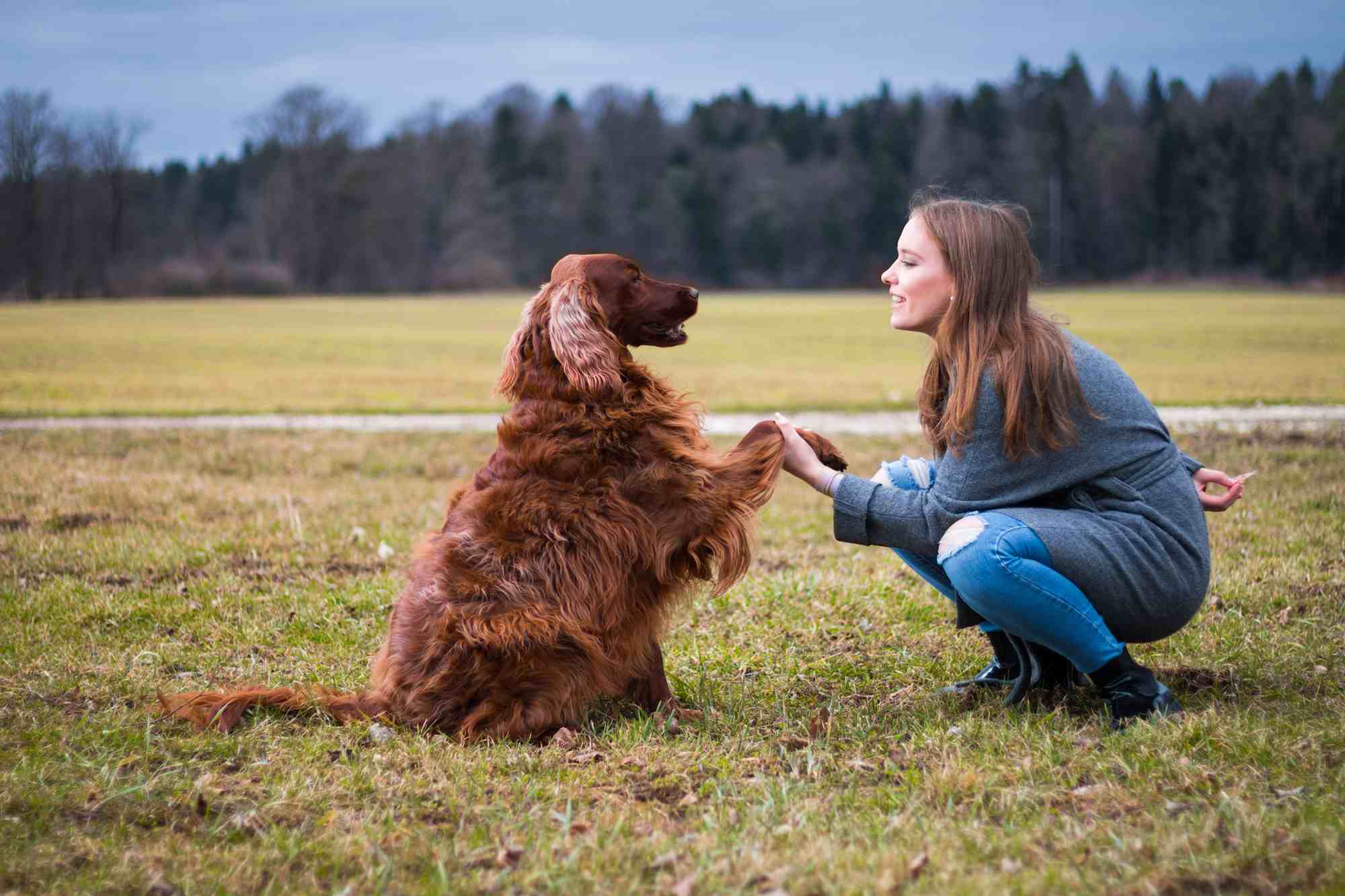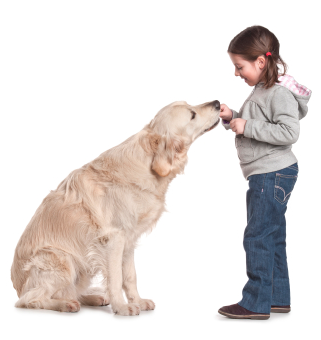
A veterinary behaviorist is a specialist in training and teaching dogs. These professionals are trained in behavioral modification, including training, correction, and prevention. All of these behaviorists are certified by Jeff Silverman, Nicholas Dodman and Board and Train. Each offer different services. The background of a dog behaviorist, including certifications, experience, and organization, should be explained. The dog behaviorist should always use positive methods when working with dogs, and you should be present during the sessions.
The behavior modification expertise of veterinarian behaviorists is well-known.
Highly trained and experienced veterinarian behaviorists can modify the behavior of dogs. They use scientifically-backed methods to find the root of problem behavior, create a customized treatment plan, and train pet owners to apply the plan at home. To ensure client success, veterinarian behaviorists also follow-up with their clients. Here are some advantages of working with a veterinarian behaviorist. They are an invaluable resource to dog owners.
Veterinary behaviorists can treat dogs and other pets. After they earn their veterinary degree, they are eligible to pursue their specialization in animal behavior. These veterinarians must complete a two-year residency under a board-certified veterinary behaviorist. A veterinarian who is board-certified as a veterinary behaviorist has passed a rigorous two-day examination and is capable of handling a range of behavioral problems. Sometimes, they can prescribe medication to alter behavior. This is a useful option for some owners.
Before you consult with a trainer if your dog is exhibiting undesirable behaviors, consult a veterinary behaviourist. A qualified trainer can teach you new behaviors, while an experienced veterinary behaviorist will conduct a thorough evaluation to discover underlying health issues. A veterinarian will know the right questions to ask to find the root cause quickly. Consult with a veterinarian if there are any questions.
A veterinary behaviorist will also be able to recognize possible medical causes of abnormal behavior. CAABs specialize in dog behavior modification. This means they will have the knowledge and experience to help with any behavioral problem. They will be able help pet owners understand their dogs' behavior and can prescribe drugs for emotional problems. The fees for services by a veterinarian behaviorist are more expensive than those of a traditional vet. However, they are able to provide better care for your dog that a traditional vet.
Veterinary behaviourists are veterinarians who have completed advanced training in animal behavior. They specialize in diagnosing and treating behavioral disorders in dogs. They have extensive training in all aspects animal behavior. They are specialized in behavior modification and use scientifically-backed techniques to treat the animal. Their training also includes rigorous training in animal health and medicine. Veterinary behaviorists have the ability to prescribe medications and provide veterinary treatment.
A dog behaviorist who trains dogs is called board and train.
A dog behaviorist will help you resolve specific problems or a combination of them. Board and Train isn't about teaching commands. It's about learning what stimulates your pet. You should ensure that the program you choose doesn't involve punishment or give out untrue promises. Cheap, low-quality programs can seem very attractive, but they can have harmful effects. This article will discuss the differences between a board-and-train program and a behaviorist's approach in dog training.
Different benefits can be attributed to different types of board and train programs. It may sound like an efficient solution but board and train programs can have both their advantages and disadvantages. The biggest benefit is intensive training. A good board and trainer program will keep you informed about the progress of your dog, as well as video clips of the trainer's interactions with your dog. The pace of a dog's development will vary depending on its trainer. However, it is affected by many factors including breed, temperament, genetics and breed.
While there are many benefits to a program that trains and boards dogs, many owners still prefer this method because it is more convenient and less expensive. Board and Train dogs spend 22 hours a days in a kennel. This isn't enough time to effectively reinforce the training. If the dog is not being trained, it is important to look into the behavior of the dog. A behaviorist can help you get your pet back on track.

A board and training facility offers one-on-1 training sessions. While exact training protocols vary between board and train facilities, all should be based on humane techniques that foster a bond between the owner and dog. The most current research on learning and behavior is vital when selecting a board and training facility. Many dog training facilities for send-away dogs rely heavily on outdated methods of training your dog and fear-based techniques.
Dog behaviorists use board and train to train your dog. Board and train aims to create a confident, obeying dog that can follow all commands. These programs can take anywhere from a few hours to several weeks, depending on the size of the training facility and the city where the training takes place. This is an option that may work best for dogs older than 10 years old who have separation anxiety.
Jeff Silverman is a dog behaviorist
If you are looking to hire a dog behaviorist, this is the place for you. Jeff Silverman is a trained dog trainer and was featured in the Chronicle of the Dog and the St. Louis Post Dispatch. He has also given lectures for animal welfare organizations and local veterinarian associations. He is also a regular on WMUB's free advice show. These are some ways to make your dog friendlier.
David Ross, a veterinary specialist with over 33 years of experience working with dogs, is an expert in dog veterinary medicine. David Ross's Dog Remedy Training program combines behavior training with diets and fitness programs. ESA Care allows him to see patients. He also shares his 40 years of knowledge and experience with dog behavior with clients in his private practice in California. He has helped many animals and has taught classes at Polytechs and held workshops in New Zealand.
Tanya Ross is an experienced dog trainer. She has a special interest in working with small breeds as well as performance dogs. She uses games to teach valuable skills and makes the process fun. Her methods include dog training, tricks and walking with the pet. She also runs an organization that trains dogs in early detection of cancer. Tanya Ross has been working in dog training for 25 years. She was the first American to train dogs to detect cancer. She was supported by the federal government.
His TV show was widely-syndicated from 2011 to 2014 and featured a variety of celebrities and everyday people with dogs. A training certification program was also developed by him that allows certified trainers to visit clients. This program is for both private trainers as well as groups. The focus is on reactivity issues in dogs, so he is an expert in this field. Amazon sells his book, Proven Expert Tip and Tricks for Dog Behavior.
Many dog behaviorists also own their own schools. Their target audience are dog owners who struggle with behavior issues, such as separation anxiety or aggression. Jeff Silverman is available to work with dog owners who have problems with their pet's behavior. He suggests personalized programs for long-term treatment that meet the individual needs of both the dog and the owner.
Nicholas Dodman specializes in dog behavior.
Internationally recognized expert in the field, Dr. Nicholas Dodman has been a dog behavior specialist. His books are renowned for their practicality, accuracy, and practicality. Dodman is also an author of several books, including The Well-Adjusted Dog, which was meant as a "Dog Ownership 101" textbook. Pets on the Couch is a book Dodman published recently. It helps owners and their pets find common interests: their beloved dogs.

Dodman has published many books on animal behavior, including a popular puppy-related book. Houghton Mifflin also accepted his proposal to publish a book on responsible dog ownership. Zero Odor, which makes odor-reduction products, also has him as a spokesperson and consultant. He is also the director of a pilot television movie, sponsored by the Humane Society of the United States. The dog behaviorist recently completed a 28-minute infomercial and television pilot for Zero Odor LLC. He was also featured on Good Morning America.
Dr. Dodman, a Diplomate of American College of Veterinary Behaviorists, is a Professor of Veterinary Medicine from Tufts University. While at veterinary school, he became interested in animal behavior and started working in a clinic in 1986. Additional board certification in animal behaviour was obtained from the American College of Veterinary Behaviorists. Dodman started seeing cases in 1987, and has dedicated his career to animal behaviour since then.
Nick enjoys traveling, hiking, playing golf and walking dogs. He is also a fan of Japanese culture and Japanese food. He has a favorite sushi spot in Tokyo. He loves to travel and read books about animal behavior. He is highly sought-after speaker at conferences and other events. In addition to his publications, Dr. Dodman has a thriving clinical practice and is a guest lecturer on animal behavior.
A certified Applied Animal Behaviorist (CAAB) is an expert in dog behavior. This is a designation that is granted to graduate students in animal behaviour. Most veterinarians hold a doctorate in veterinary medicine. Certified animal behaviorists must have at least a master’s degree. To become a veterinarian, a three-year residency and internship are required. For dog behaviorists, a veterinarian's diploma is required.
FAQ
Three things you should think about before getting a cat.
These are the questions to ask before you buy a cat.
-
Do you have any questions about the health of your cat?
-
Will the cat eat all my food, or will he?
-
Is it because I am a lover of cats or do you just want a pet to play with?
What should you do if your dog bites someone else?
If an animal attacks you, it is important to first make sure it isn't rabid. If this is impossible, you can call for help. You could be seriously hurt if you try to manage the situation yourself.
If the animal bites but isn't aggressive, take it to a veterinarian. Your vet will examine it, and then advise you if additional treatment is necessary.
In most cases, rabies shots are required. These should never be administered yourself. Only a qualified person should do so.
Which of the two is more difficult to train: dogs or cats?
Both. It depends on how they are trained.
Children learn faster when you reward them for their good behavior. However, if you ignore them and don't listen to them, they'll begin to ignore you.
There's no right or incorrect answer. You have to decide what the best way is to teach your cat/dog.
How to train a pet?
It is important to be consistent when training your dog or cat. You must make sure you are consistent in how you treat them. If they think you're mean they won't trust you. They may also begin to believe that all people are like them.
They will not know what to expect if you're inconsistent with your treatment. This could cause them to become anxious around others.
Positive reinforcement is the best method to teach a cat or dog. When you reward them for doing something right, they will want to repeat this behavior.
If they are guilty of a crime, punishing them will be associated with bad behavior and not rewards.
Good behavior should be reinforced with treats, such as food and toys. Praise is a great way to reinforce good behavior.
You can use clickers to help train your pet. Clicking is when you press a button on your pet to tell him he did well.
This is because clicking indicates "good job" to animals.
First, show your pet the trick. After that, reward him with a treat and ask him to perform it.
If he does it correctly you should give him praise. Don't praise him too much. Be sure to praise him only once.
It is also important to establish limits. Don't let your pet jump up on other people. Or don't allow him to bite strangers.
You must always supervise your pet so that he doesn’t injure himself.
Statistics
- A 5% affiliation discount may apply to individuals who belong to select military, law enforcement, and service animal training organizations that have a relationship with Nationwide. (usnews.com)
- Here's a sobering reality: when you add up vaccinations, health exams, heartworm medications, litter, collars and leashes, food, and grooming, you can expect a bill of at least $1,000 a year, according to SSPCA. (bustle.com)
- For example, if your policy has a 90% reimbursement rate and you've already met your deductible, your insurer would pay you 90% of the amount you paid the vet, as long as you're still below the coverage limits of your policy. (usnews.com)
- In fact, according to ASPCA, first-year expenses can sum up to nearly $2,000. (petplay.com)
- It is estimated that the average cost per year of owning a cat or dog is about $1,000. (sspca.org)
External Links
How To
How to choose the best name for your pet
Choosing a name for your pet is one of the most important decisions you'll make when adopting a new animal into your home. Names should reflect the personality and character of your pet.
You need to think about how others may refer to you. You should also consider how you would like to be called. Are you more comfortable calling yourself "dog" or your "pet"?
Here are some tips that will help you get started.
-
You should choose a name that suits your dog's breed. If you're familiar with the breed (e.g. Labradoodle), search for names associated with it. Ask someone who has a deep understanding of dogs for suggestions on naming a dog after the breed.
-
Take into account the meaning behind the name. Some breeds are named after people and places while others are simply nicknames. A Labrador Retriever, for example, was given the name "Rover" as he was always running around.
-
Think about how you'd like to be called. Are you more comfortable calling your dog "dog" or "pet?" Would you prefer to refer to your dog as "Puppy," or "Buddy",?
-
Include the first name of the owner. It's sensible to give your dog an owner's name. But, don't limit yourself by limiting your family's names. Your dog might grow up to be a member your family.
-
Remember that pets can have multiple names. A cat, for example, might have multiple names depending on where she lives. While she may be called "Kitty Cat" at her home, she might go by "Molly" when visiting her friends. This is especially true for cats who live outside. Many cats adopt their names to suit their environment.
-
Be creative There are no rules saying that you must stick to a specific naming convention. You just need to choose something that is unique and memorable.
-
Be sure to check that your chosen name does not already belong in the hands of another person or organization. You won't accidentally steal the identity of someone else!
-
Don't forget that choosing a name is not an exact science. Sometimes, it can take time to find the right name for your dog. Keep at it until you find the right match.